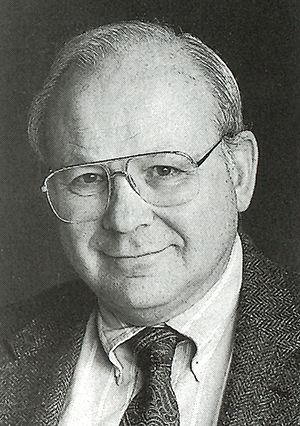Medical School dean, wife and guides killed in Nepal

Philip J. Fialkow
Sherpas digging in 8 feet of snow in a remote mountain valley in western Nepal located the bodies of Philip J. Fialkow, dean of the University of Washington School of Medicine and vice president for medical affairs, and his wife, Helen Fialkow, together with the bodies of their three Nepalese guides on Nov. 3.
According to information from U.S. Embassy officials in Kathmandu, evidence at the site in Nepal’s Shey Phoksumdo National Park suggested that all five were buried together in the same tent, most likely by an avalanche.
The Fialkows, both 62, had been vacationing in Nepal on a trek with six guides to visit the 800-year-old Tse Gomba Buddhist monastery. Based on reports from the field, late in the day on Oct. 21, while in Shey Phoksumdo National Park, the party encountered an unseasonably intense snow storm just after clearing a 17,000-foot pass in windy, cold conditions. Exhausted, they made camp for the night.
The next morning, with several members of the party complaining of minor frostbite and with concern over the continued extremely heavy snowfall, three of the guides were dispatched to get help. The three reached safety, but rescuers were unable to return to the site for several days due to continuing bad weather. In all, up to 9 feet of snow fell in the camp vicinity, due east of Shey Phoksumdo Lake in the upper Dolpa region.
Fialkow, who joined the UW School of Medicine faculty in 1965, had been dean of the school since 1990. In 1992 President William P. Gerberding named him vice president for medical affairs, extending Fialkow’s duties to the administration of the UW Medical Center and Harborview Medical Center.
“My wife, Suzanne, and I treasured Phil and Helen Fialkow’s friendship,” said President Richard L. McCormick. “On this tragic day, I feel certain that the loss of these two good people is one that we, along with so many others, will never quite get over. Our hearts go out to their families.
“At the same time, the University of Washington has lost a leader and a distinguished scientist who possessed a rare combination of vision, tenacity and quiet good grace. If there is any single enduring legacy that stands out more than any other, it is that Phil Fialkow left his school and the Academic Medical Center strong and on the move to a continued bright future. For this, and for so much else, we can all celebrate the good fortune of having had him in our midst.”
McCormick named Associate Vice President for Medical Affairs John Coombs the acting dean of the medical school.
Fialkow took over the School of Medicine after a rocky period where one dean was fired and another resigned. During the early 1990s, he saw the school and UW medical centers through upheavals in the health care industry, reinforcing their reputations for excellence. “During a time of turbulence, he kept things calm,” said Coombs.
Fialkow was born in New York City Aug. 20, 1934. He married Helen Dimitrakis in June 1960. During their 36 years of marriage, the Fialkows traveled extensively and shared a passion for hiking and exploration that they imparted to their two children, as well.
Hiking up 17,500-foot Se La, the last mountain the couple gained before perishing in Nepal last week, was one of their greatest accomplishments, family members said. They had an enormous respect for and interest in other cultures and were always looking to learn more about other people and other places.
Fialkow earned his B.A from the University of Pennsylvania in 1956 and graduated from Tufts University’s medical school in 1960. After an internship and residency at UC-San Francisco, he came to the UW in 1962 to complete his residency and joined the medical genetics faculty three years later.
Fialkow was elected a member of the Institute of Medicine of the National Academy of Sciences in 1991. His research centered on the genetic features of human tumors, especially those associated with leukemia. His findings have great clinical importance for understanding the nature of leukemia and the possibilities for cure of the disease.
Philip and Helen Fialkow are survived by their two children, Michael, a fourth-year student at the UW School of Medicine, and Deborah, who also lives in the Seattle area. Remembrances may be given to the UW School of Medicine, care of the UW Foundation, Medical Affairs Development, Box 358220, Seattle, WA 98195.